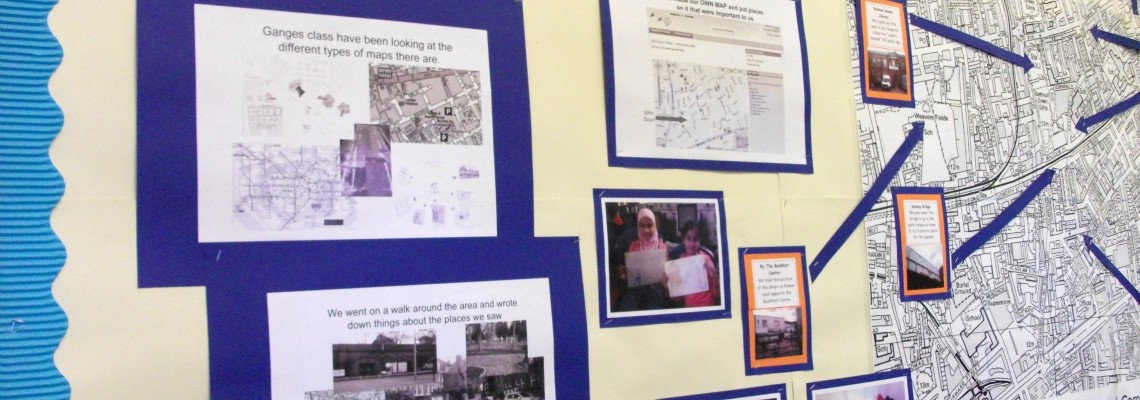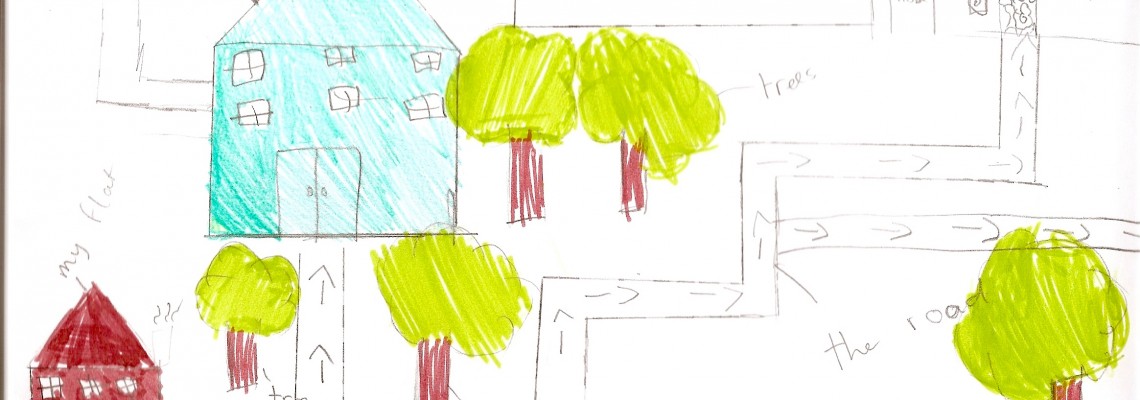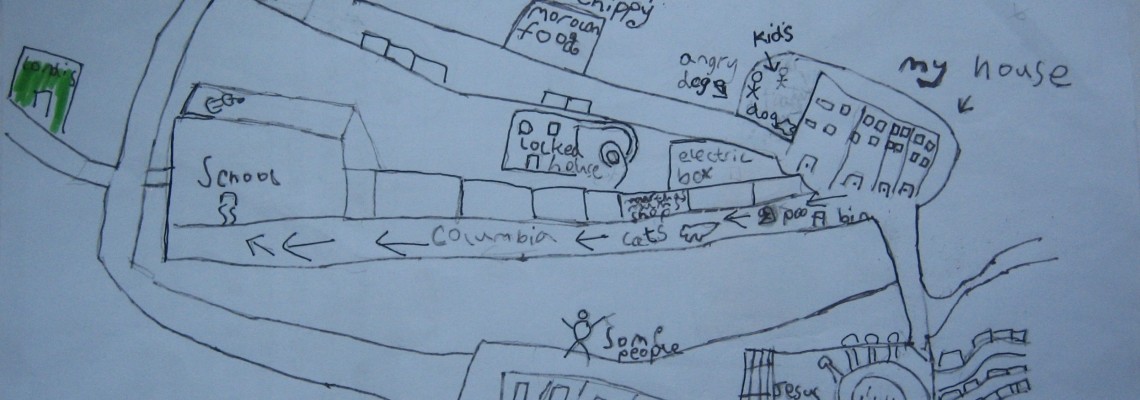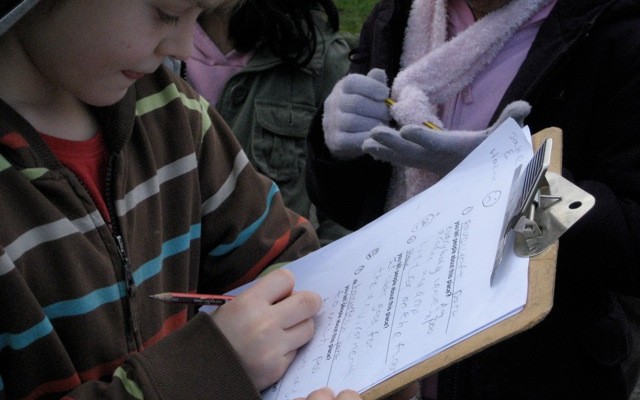Mapping for Change in collaboration with the Humanities Education Centre (HEC) and local specialist on learning and ‘place’ Maggie Hewitt, worked with three schools in Tower Hamlets (Columbia School Community Map, Arnhem Wharf School Community Map and John Scurr School Community Map) to pilot a brand new process in which Year 4 pupils develop personalised maps of their local area with their own likes, memories and views on change.
Our Role
The mapping process included learning how to navigate online systems like Google earth and Google maps, which helped to develop a ‘child-centred view’ of the area. Children were encouraged to reflect on their experiences of place, supporting geographical content, exploration and sharing around identity and enhancement of self-esteem and confidence.
Maps were used as grids and stories. Students were firstly taken around their school’s neighbourhood, where they had the chance to observe the environment and make notes about several themes (green spaces, memories, questions, answers, things liked, disliked and wished). These were classified according to ‘my world ’and ‘ on my way to school diaries’. The students’ ideas across different ‘layers’ were first written onto large paper maps using post-it notes.
Impact
After the notes, drawings and photos had been organised, students had the chance to share their own perception with others. The whole activity was important for several reasons: pupils had the change to explore and take ownership of their local environment, share their views and findings, and work together to seek solutions. According to a teacher at the Columbia school: “They are beginning to understand that they are entitled to an opinion about their environment and that their ideas are valid.”
Related Projects
Ramp It Up!
‘Ramp It Up’ was a social media campaign aiming to increase awareness about the barriers people with limited mobility face on a daily basis. We called on communities to help their towns and cities become more wheelchair friendly by encouraging shops, restaurants or any building open to the public to use portable wheelchair ramps if more permanent solutions cannot be made.
Eco21.PL
Funded under the Swiss Block Grant, Mapping for Change in collaboration with the Centre for Training and Personal Development MERITUM, the Cultural Authority City of Gardens and Highways 4 Elements carried out a two year training programme in the Silesia region of Poland.
Science in the City 2
The City of London Corporation and Mapping for Change are teaming up once again to conduct a citizen science project to monitor air quality in the capital city and evaluate the recent changes made in the area. The project will seek to understand the impacts that public participation and citizen science have on environmental issues.



